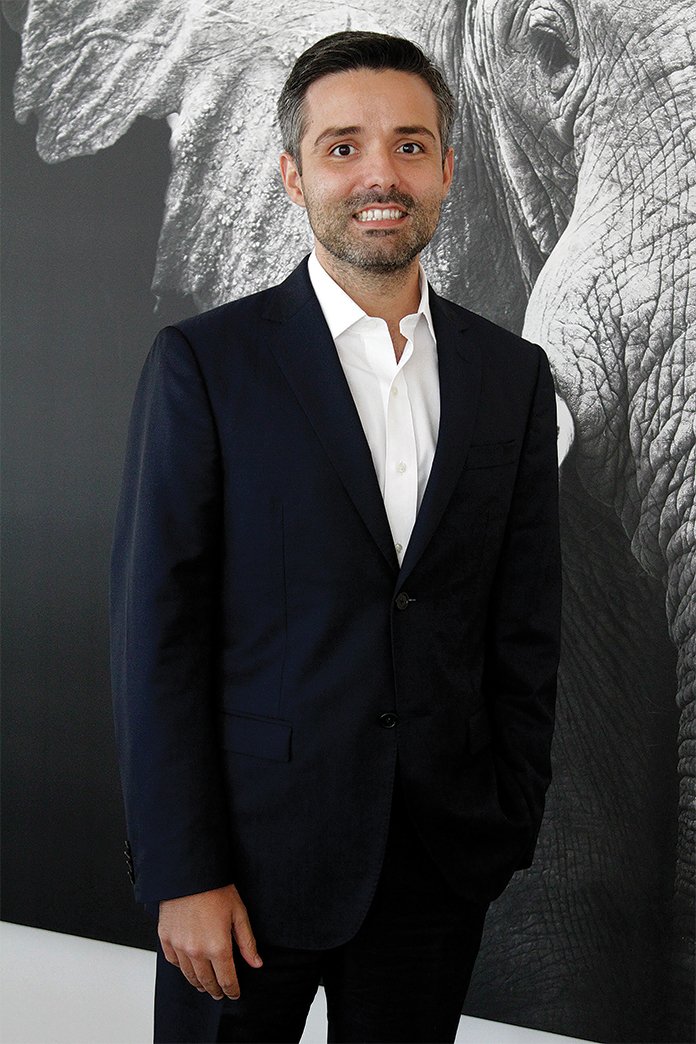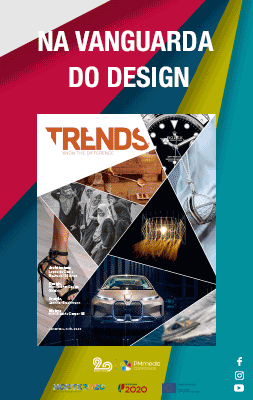
With a degree in Business Management from Universidade Católica Portuguesa, Diogo Caldas has been the Chief Executive Officer of Refriango since 2018, a company that for over two decades has specialised in the production and distribution of soft drinks, such as juices, waters, energy drinks and alcoholic beverages. Positioned as one of the largest industries operating in Angola, it also owns several international brands, some of which are market leaders in their segment. Advanced technology, expert certified quality control together with its own distribution fleet, make this company a benchmark figure on the African continent.
Today the company’s portfolio is vast, but what was it like 20 years ago?
Refriango started out as a company that distributed and sold imported food and beverages. But in the first few years of this century it became clear that there was an opportunity to invest in the local production of drinks, and in 2005 we opened a factory, with just one filling line, in Kikuxi, in the Luanda province. It was at this time that Blue, Angola’s best known soft drink, first came about. Refriango has always excelled at developing its own brands and quality products and innovating. These are the pillars of the company – innovation, quality and diversity of products catering to consumers’ tastes.
And thus, you have been adding to your product portfolio...
Yes, then other brands appeared in various segments, such as Pura water, Nutri and Tutti juices, the Speed energy drink and, for children, Kuia juice. At the same time we were increasing our industrial capacity, the goal was to meet the country’s needs and this led us to becoming market leaders in the non-alcoholic drinks category. We have been producing well-known products for several years, and we have won several international medals, largely due to our great commitment to quality control, in which there has always been great investment. We have the only industry laboratory in Angola with ISO 1725 certification and also ISO 22000 food certification. Over the years, we have always produced brands in Angola for the Angolans.
«Refriango has always excelled at developing its own brands»
When we visited the factory, we noticed that the drinks are quarantined. What is the reason for this?
In point of fact, a word so often heard these days also applies here. This is a rule of good practice and quality. We take samples directly from the filling lines so that the products can be tested microbiologically. But we do not get the results immediately; some take 48 hours, others five days and others need 12 days, so they have to be kept in quarantine until we have the final result from the samples. Only then can we certify that the product is in compliance to go on the market.
Can your brands be found in provinces outside Luanda?
Absolutely. Refriango has been growing and increasing its industrial capacity, and is present in Luanda and in other provinces. We have our own distribution structure of people and vehicles. We have a fleet of more than 400 vehicles, ensuring an efficient service. We deliver products in Luanda in less than 24 hours and in 62 hours in the provinces.
«We have the only industry laboratory in Angola with ISO 1725 certification»
You have also forged partnerships for the distribution of international drinks…
As a result of our work and our expertise in the commercial, distribution and marketing sector, in 2012 we entered a partnership with Moët Hennessy, which owns the Veuve Clicquot, Moët & Chandon and Dom Pérignon champagne brands. This allowed us to enter a higher segment in terms of distribution. At the same time, we also became partners with Diageo, which is the largest multinational spirits company, becoming distributors for Johnnie Walker, Vat 69 and JB whiskeys, Gordon’s gin and Smirnoff vodka. And we have entered new market segments where we had not been present before.
This decade also saw you launch a beer…
When the crisis began, we saw the opportunity to enter the beer segment, where we had no presence and which is, in terms of alcoholic drinks, the one with the highest consumption in Angola. It was a strategy to deal with the purchasing power that had fallen. At the end of 2014, we went ahead with the construction of the brewery, which is one of the most modern ones in terms of technology in Africa. And 17 months later, Angola witnessed the arrival of Tigra, with a modern positioning, compared to the monopoly that existed at that time in this segment.
«When the crisis began, we saw the opportunity to enter the beer segment»
It was a packed decade and with even more innovations with regard to the production of other products.
Without a doubt, because in 2018 we went ahead with a joint venture with our partner Diageo and started producing Smirnoff, Gordon’s and Vat 69, among other brands manufactured in England and Ireland that we were importing. This advance allowed us to be more competitive, to grow in the Angolan and African markets and at the same time create more jobs. We currently have around 2200 people working with us. The manufacturing unit covers some 600,000 square metres, and welcomes independent factories depending on the products we sell. In total there are 27 filling lines with a total capacity of 2.5 billion litres of annual production.
And you have already defined your strategic plan until 2025. Anything new to tell us about?
We intend to grow in the beer segment, so we have established a partnership with the Super Bock Group to manufacture Super Bock and Cristal in Angola, both beers that are well known and appreciated by Angolans. At the same time, we have entered a partnership with the Coca Cola Company and we already have Minute Maid on the market. It was a privilege for us to have been chosen to represent this product that first appeared in the USA in 1945. And we will have other products from the Coca Cola Company. We hope to continue growing, to increase the number of jobs, to bring products to Angolans that meet their tastes and to continue with our Social Responsibility actions, where, among many, I would like to highlight Voleiblue, a project that began ten years ago, and is now in 11 schools in Luanda and involves more than three thousand athletes, who have had excellent results.









